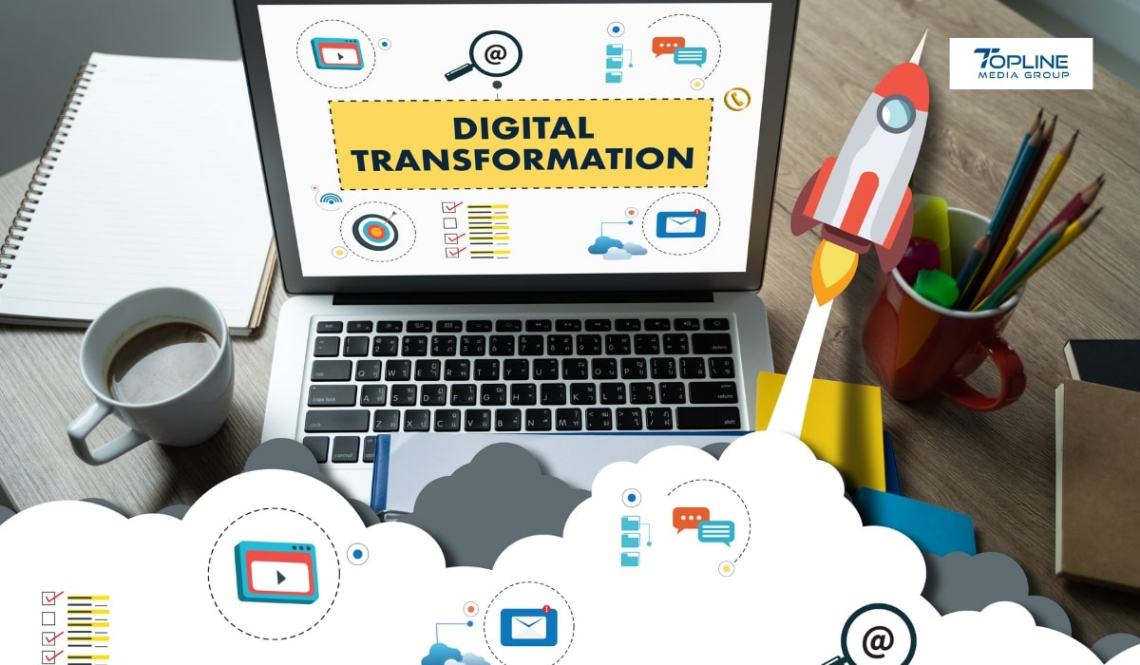In today’s rapidly evolving business landscape, digital marketing has emerged as a vital tool for small businesses aiming to establish their presence and compete effectively.
Unlike traditional marketing methods, digital marketing offers cost-effective, highly targeted, and measurable strategies that can drive substantial growth.
Here’s an in-depth look at the benefits of digital marketing for small businesses and how it can transform their growth trajectory.
Cost-Effectiveness
One of digital marketing’s most significant advantages is its cost-effectiveness.
Traditional marketing channels, such as television, radio, and print ads, often require substantial budgets that small businesses may need more money to afford.
Digital marketing, on the other hand, offers a range of affordable options, including social media advertising, search engine optimization (SEO), email marketing, and pay-per-click (PPC) campaigns.
These methods allow small businesses to reach a larger audience without breaking the bank.
Enhanced Targeting
Digital marketing enables businesses to target their audience with precision.
Unlike traditional marketing, which often casts a wide net, digital marketing tools like Google Ads and Facebook Ads allow for demographic, geographic, and psychographic targeting.
This means businesses can tailor their messages to specific groups of people who are more likely to be interested in their products or services.
Enhanced targeting ensures that marketing efforts are not wasted on uninterested parties, leading to higher conversion rates and better return on investment (ROI).
Measurable Results
One of traditional marketing’s challenges is the difficulty of measuring results.
Digital marketing provides robust analytics tools that allow businesses to track the performance of their campaigns in real-time.
Metrics such as website traffic, conversion rates, click-through rates, and engagement levels provide valuable insights into what works and what doesn’t.
This data-driven approach enables businesses to make informed decisions, optimize their strategies, and achieve better results over time.
Improved Customer Engagement
Digital marketing offers numerous platforms and channels for engaging with customers.
Social media, email newsletters, blogs, and live chats provide opportunities for two-way communication, fostering a sense of community and loyalty among customers.
Engaging content, timely responses to inquiries, and personalized interactions help build trust and strengthen relationships with the target audience.
This improved engagement can lead to increased customer retention and advocacy.
Broader Reach

The Internet has a global reach, allowing small businesses to transcend geographical boundaries and tap into new markets.
With digital marketing, a local business can reach potential customers around the world, expanding its customer base and increasing revenue opportunities.
This broader reach is particularly beneficial for e-commerce businesses that can sell their products or services to a global audience.
Enhanced Brand Awareness
Consistent and strategic digital marketing efforts can significantly enhance brand awareness.
Through social media posts, blog articles, video content, and other digital assets, businesses can convey their brand message and values to a broader audience.
Over time, this increased visibility helps establish brand recognition and credibility, making it easier for potential customers to recall and trust the brand when making purchasing decisions.
Increased Conversion Rates
Digital marketing strategies are designed to drive conversions.
By targeting the right audience with compelling content and offers, businesses can encourage potential customers to take desired actions, such as making a purchase, signing up for a newsletter, or requesting a quote.
Techniques like A/B testing, retargeting, and personalized marketing campaigns help optimize the customer journey and increase conversion rates.
Adaptability and Flexibility
Digital marketing offers unparalleled adaptability and flexibility.
Campaigns can be launched, adjusted, and paused with ease, allowing businesses to respond quickly to market changes and emerging trends.
This agility is essential for small businesses that need to make the most of limited resources.
Whether it’s tweaking ad copy, targeting different demographics, or experimenting with new platforms, digital marketing allows for continuous optimization and innovation.
Better Customer Insights
Understanding customer behavior and preferences is crucial for business success.
Digital marketing tools provide valuable insights into customer demographics, interests, online behavior, and purchasing patterns.
This information can be used to create more targeted and effective marketing campaigns, develop new products or services, and improve overall customer satisfaction.
By leveraging customer insights, small businesses can stay ahead of the competition and anticipate market needs.
Increased Competitiveness
Digital marketing levels the playing field for small businesses, allowing them to compete with larger companies.
With a well-executed digital marketing strategy, small businesses can achieve visibility and engagement comparable to that of more prominent brands.
This increased competitiveness is vital in today’s market, where consumers have numerous options and are constantly bombarded with marketing messages.
Boosted Revenue and Growth
Ultimately, the goal of any marketing effort is to drive revenue and growth.
Digital marketing helps small businesses achieve this by increasing brand awareness, driving traffic, generating leads, and converting prospects into customers.
The cumulative effect of improved targeting, better engagement, higher conversion rates, and broader reach translates into significant revenue growth.
As digital marketing strategies are refined and optimized over time, businesses can expect sustained growth and long-term success.
Access to a Variety of Channels
Digital marketing encompasses a wide range of channels and platforms, each offering unique benefits.
From social media and email marketing to SEO and content marketing, businesses can diversify their marketing efforts and reach their audience through multiple touchpoints.
This multi-channel approach ensures that companies can connect with potential customers wherever they are, increasing the chances of conversion.
Empowerment Through Automation
Marketing automation tools can streamline and simplify digital marketing efforts.
Automation platforms allow businesses to schedule social media posts, send automated email campaigns, manage customer relationships, and track analytics all in one place.
This not only saves time and effort but also ensures consistency and precision in marketing activities.
Small businesses can focus on strategic planning and creative execution while automation handles routine tasks.
Improved Customer Experience
A seamless and personalized customer experience is essential for retaining customers and encouraging repeat business.
Digital marketing techniques such as customized email marketing, tailored content recommendations, and responsive customer service enhance the overall customer experience.
Satisfied customers are more likely to become loyal advocates, referring others to the business and contributing to organic growth.
Future-Proofing the Business
As technology continues to evolve, digital marketing remains at the forefront of innovation.
By investing in digital marketing, small businesses are future-proofing their operations and ensuring they remain relevant in an increasingly digital world.
Staying updated with the latest digital marketing trends and technologies allows companies to adapt to changing consumer behaviors and maintain a competitive edge.
Conclusion
In conclusion, digital marketing offers a plethora of benefits for small businesses, from cost-effectiveness and enhanced targeting to measurable results and improved customer engagement.
By leveraging digital marketing strategies, small businesses can achieve significant growth, expand their reach, and build lasting relationships with their customers.
The adaptability, flexibility, and data-driven nature of digital marketing make it an indispensable tool for any small business looking to thrive in the modern marketplace.
Embracing digital marketing is not just an option; it is a necessity for small businesses aiming to achieve sustained growth and success.
Ready to transform your business growth with digital marketing? Contact us at Topline Media Group to get started!
FAQs
What are the main advantages of digital marketing for small businesses?
Digital marketing offers several critical advantages for small businesses, including cost-effectiveness, enhanced targeting capabilities, measurable results, and the ability to engage with customers on various platforms.
How does digital marketing help in improving customer engagement?
Digital marketing provides multiple channels, such as social media, blogs, and email newsletters, for businesses to engage directly with their customers. This fosters two-way communication, builds trust, and encourages customer loyalty.
Why is measuring results easier with digital marketing compared to traditional methods?
Digital marketing tools provide robust analytics that tracks metrics such as website traffic, conversion rates, and engagement levels in real-time. This data-driven approach allows businesses to assess the effectiveness of their campaigns and make informed decisions.
How does digital marketing enhance brand awareness?
Consistent digital marketing efforts through social media, content marketing, and online advertising help businesses reach a wider audience and establish brand recognition. Increased visibility leads to enhanced brand credibility and recall among consumers.
What role does digital marketing play in increasing conversion rates?
Digital marketing strategies such as targeted advertising, personalized content, and optimized user experiences are designed to guide potential customers through the buying journey, leading to higher conversion rates and improved ROI.
How does digital marketing empower small businesses to compete with larger companies?
Digital marketing levels the playing field by allowing small businesses to reach a global audience and compete effectively with larger competitors. Strategic digital campaigns can generate visibility and engagement comparable to more prominent brands.
What are the benefits of using marketing automation in digital marketing?
Marketing automation tools streamline repetitive tasks like social media scheduling, email campaigns, and customer relationship management. This frees up time for businesses to focus on strategic planning and creative initiatives.
How does digital marketing contribute to future-proofing a business?
By staying abreast of digital trends and technologies, small businesses can adapt to changing consumer behaviors and market dynamics. Investing in digital marketing ensures long-term relevance and competitiveness in a digital-first world.
How can small businesses leverage customer insights from digital marketing?
Digital marketing analytics provide valuable data on customer demographics, preferences, and behavior. Businesses can use this information to tailor their marketing strategies, improve customer experiences, and anticipate market trends.
Why is digital marketing considered cost-effective for small businesses?
Unlike traditional marketing channels that require large budgets, digital marketing offers affordable options such as social media ads, SEO, and email marketing. This allows small businesses to achieve significant reach and engagement within budget constraints.
How does digital marketing support revenue growth for small businesses?
Through increased brand awareness, targeted advertising, and optimized conversion strategies, digital marketing drives traffic, generates leads and converts prospects into paying customers. This results in sustainable revenue growth over time.




